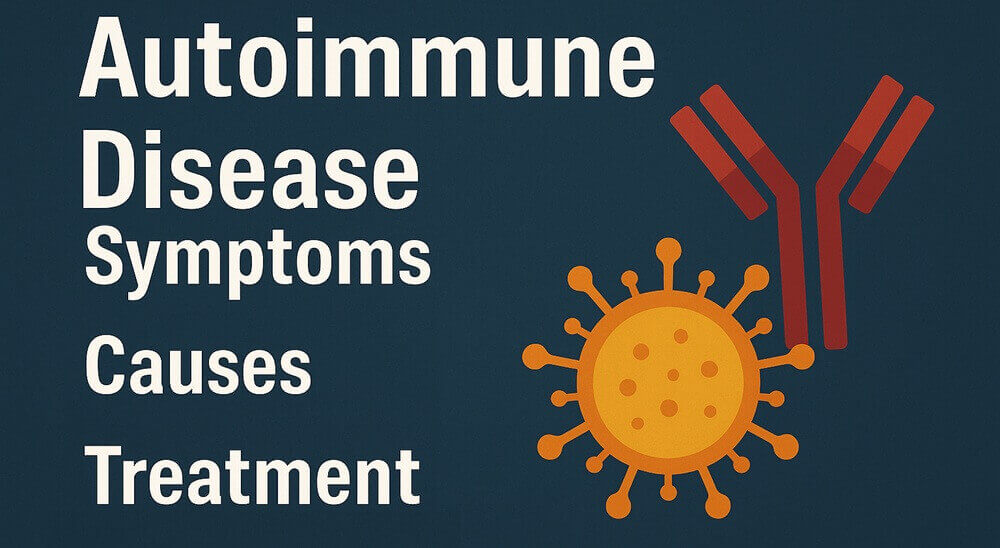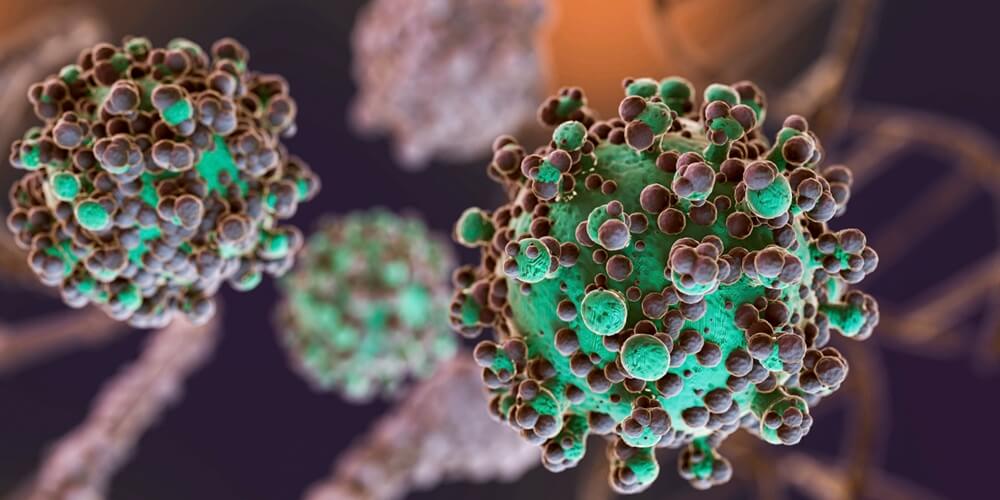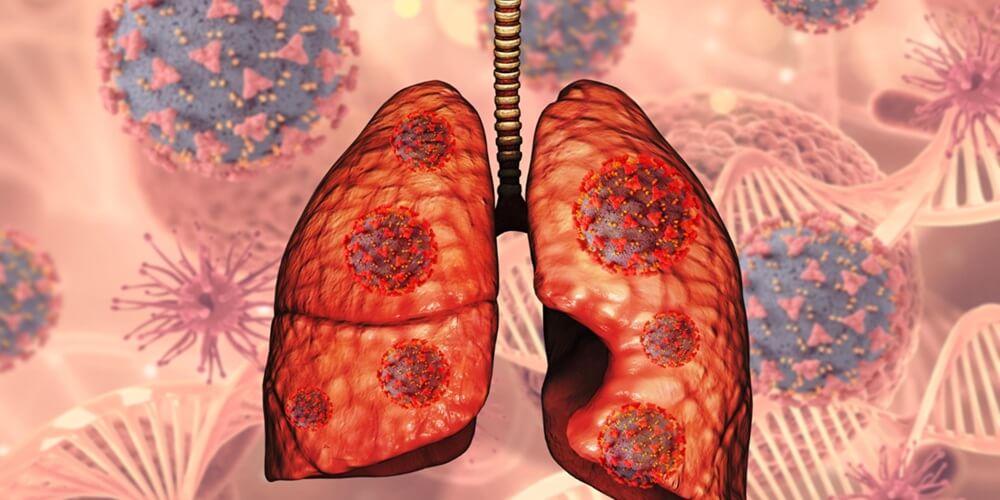Home » Autoimmune Disease: Symptoms, Causes, and Treatment

Autoimmune diseases represent one of the most complex health challenges in modern medicine. Affecting millions of people worldwide, these disorders occur when the body’s immune system mistakenly attacks healthy cells, leading to chronic inflammation, tissue damage, and long-term health complications. Despite decades of research, the question of what is autoimmune disease continues to evolve, as doctors and scientists uncover new subtypes, triggers, and therapies.
This content provides a detailed look at autoimmune disease symptoms, causes, and treatment, while also explaining how lifestyle and environment play a critical role in managing these conditions. In this article, we will tell you how to catch this disease, how to treat it, how to get rid of it, and what its effects are, with all the details.

The immune system is designed to protect the body against infections and foreign invaders. However, in an autoimmune disease, the defense system misidentifies the body’s own tissues as threats and begins attacking them.
Autoimmune conditions fall into different categories depending on the part of the body affected:
Type 1 Diabetes – Destroys insulin-producing cells in the pancreas.
Hashimoto’s Thyroiditis – Attacks the thyroid gland, causing hypothyroidism.
Celiac Disease – Triggered by gluten, damages the small intestine.
Rheumatoid Arthritis (RA) – Causes inflammation in joints.
Systemic Lupus Erythematosus (SLE) – Can affect skin, kidneys, joints, and brain.
Multiple Sclerosis (MS) – Attacks the protective covering of nerves.
Because these conditions are diverse, symptoms vary — but some are shared across many autoimmune diseases:
Symptoms often flare up unpredictably, making diagnosis difficult. Early signs may be dismissed as stress or minor illness, delaying treatment.

The causes of autoimmune disease are still not fully understood. Research points to a multifactorial origin — meaning several overlapping factors contribute:
Family history increases risk. Certain genes linked to the immune system (such as HLA genes) make people more vulnerable.
Women account for nearly 80% of autoimmune disease cases, suggesting estrogen and other hormones play a role.
Chronic stress disrupts the immune system, while lack of sleep and poor nutrition may worsen conditions.
Diagnosing autoimmune disease is often challenging because symptoms overlap with other conditions. Doctors may use:

There is no universal cure for autoimmune diseases, but effective treatment strategies focus on controlling symptoms, reducing inflammation, and improving quality of life.
Corticosteroids – Control acute inflammation.
Immunosuppressants – Weaken overactive immune responses.
Biologic drugs – Target specific immune pathways.
Pain relievers & anti-inflammatories – Ease daily discomfort.
Diet: Anti-inflammatory diets rich in fruits, vegetables, lean proteins, and omega-3 fatty acids.
Exercise: Gentle movement like yoga, swimming, or walking helps maintain joint mobility.
Stress Management: Meditation, breathing exercises, and therapy can reduce flare-ups.
Helps patients with joint or nerve damage regain mobility and maintain independence.
Because autoimmune diseases are chronic, long-term medical supervision is key to adjusting treatments and preventing complications.
Managing an autoimmune disease requires patience, resilience, and lifestyle adjustments. Many patients experience alternating periods of wellness and flare-ups, making planning and consistency difficult. However, with the right treatment and support systems, individuals can lead active, fulfilling lives.
Support groups, patient education, and early medical intervention are invaluable tools in coping with autoimmune disorders.
Autoimmune diseases are complex, lifelong conditions with wide-ranging symptoms and causes. By understanding what autoimmune disease is, recognizing early warning signs, and following effective treatment plans, patients can better manage their health. Ongoing research offers hope for more targeted therapies — and eventually, cures.

Currently, there is no cure for autoimmune diseases. Treatments focus on controlling symptoms, reducing inflammation, and slowing disease progression. However, ongoing research into biologics and gene therapies provides hope for more targeted treatments in the future.
Diet plays a big role in autoimmune disease symptoms. Common triggers include:
Alcohol and highly processed snacks
An anti-inflammatory diet rich in vegetables, omega-3s, lean proteins, and whole foods may help reduce flare-ups
While anyone can develop one, women are more likely than men to suffer from autoimmune conditions. Risk factors include:
Diagnosis is often complex because symptoms overlap with many conditions. Doctors use a combination of:
There is no “one-size-fits-all” treatment. Autoimmune disease treatment depends on the specific condition but may include: